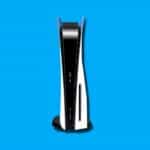A slow booting computer is a common problem that can hinder productivity and disrupt workflow. There are several factors that can contribute to this delay, which stem from the system’s complexity and the processes it must complete to start up correctly. When a computer is turned on, it goes through a sequence of operations known as the boot process, which loads the operating system and other necessary components into memory.
This sequence can be affected by various elements such as the number of startup programs, the health of the hard drive or solid-state drive, and even malware infections. Understanding what causes these delays is the first step towards addressing them. A computer with too many startup applications will take longer to become responsive. Similarly, outdated drivers or system features like fast boot settings in the BIOS can affect startup times. It’s also important to consider hardware components; for instance, switching from a traditional hard disk drive to a solid-state drive can significantly reduce boot times due to faster data access speeds.
Key Factors and Troubleshooting
If your once-speedy computer is starting to feel sluggish, especially during startup, there’s no need to panic. Several factors can slow down the boot process, and thankfully, you can take steps to improve the situation.
Common Causes of Slow Computer Startup
Before we delve into solutions, let’s understand the most likely reasons behind a slow boot time:
| Factor | Explanation |
|---|---|
| Too many startup programs | Programs launching at startup compete for resources. |
| Full hard drive | A lack of free space hinders system operations. |
| Outdated drivers | Inefficient drivers cause performance bottlenecks. |
| Malware | Malicious software can consume system resources. |
| Aging hardware | Older components may simply be slower to respond. |
How to Speed Up Your Boot Time
Now that we understand why your computer might be lagging let’s explore how to get it back up to speed:
1. Disable Unnecessary Startup Programs
- Windows:
- Press Ctrl + Shift + Esc to open Task Manager.
- Click the “Startup” tab.
- Right-click on programs you don’t need at startup and select “Disable.”
- macOS:
- Go to System Preferences > Users & Groups.
- Select your account and click “Login Items.”
- Uncheck the boxes next to programs you want to prevent from launching at startup.
2. Free Up Space on Your Hard Drive
Aim to keep at least 15-20% of your hard drive’s capacity free. Uninstall unused programs and delete unnecessary files. Tools like Disk Cleanup (Windows) and CleanMyMac (macOS) can automate the cleanup process.
3. Update Drivers
Outdated drivers can be the culprit. Go to your computer manufacturer’s website or use a driver updater tool to identify and install the latest drivers.
4. Scan for Malware
Malware can secretly hog your system resources. Run a full system scan with your antivirus or anti-malware software.
5. Consider Hardware Upgrades
If your computer is getting significantly older, upgrading components can help. Consider:
- Replacing your hard drive with an SSD: SSDs are significantly faster than traditional hard drives.
- Adding more RAM: This allows your computer to handle more tasks simultaneously.
Let me know if you’d like more detailed instructions for any of these steps!
Key Takeaways
- Slow boot times can be due to numerous factors including startup applications and system settings
- Hardware components like SSDs can significantly improve boot speed
- Regular maintenance such as updates and malware scans can enhance system performance
Understanding Boot Process and System Performance
When a computer starts up, several processes work together to get the system running. The speed of booting up can be affected by how these processes perform and interact with the computer’s hardware and software.
Role of Hardware Configuration
Hardware components like the CPU, RAM, and storage drive play a critical role in boot time. Computers with a more powerful CPU and more RAM usually start faster than those with less capable components. The storage drive makes a big impact too. An SSD (solid-state drive) speeds up boot times significantly over a traditional hard disk because it reads and writes data much faster.
- CPU: The brain of the PC that processes tasks
- RAM: Short-term memory that stores active data for quick access
- SSD vs Hard Disk:
- SSD: More expensive but provides faster performance
- Hard Disk: Less costly but slower, affecting boot momentum
Operating System Efficiency
An operating system like Windows 10 or Windows 11 manages the computer’s tasks and resources. Efficient operating systems improve boot times. For instance, features like Windows Fast Startup help by saving the system state to a file upon shutdown, allowing for quicker boot-up.
- Windows Fast Startup: Reduces startup time by saving system data
- BIOS Settings: Adjusting BIOS can improve startup performance
- System Updates: Keeping the operating system updated can enhance efficiency
Start-Up Applications and Services
Too many applications and services set to run when a computer boots up can cause slow start times. Some software programs automatically configure themselves to start with Windows. Limiting which programs run at startup can help.
- Start-Up Apps: The fewer apps that auto-start, the quicker the PC boots
- Services: Essential services should run at startup; others can be disabled
- Virtual Memory: The paging file usage, if set correctly, helps manage workload when RAM is full
Boot performance is complex but understanding these elements can help pinpoint why a PC may be slow to start. Optimizing hardware settings, streamlining the operating system, and managing start-up items can lead to faster boot times and better overall performance.







